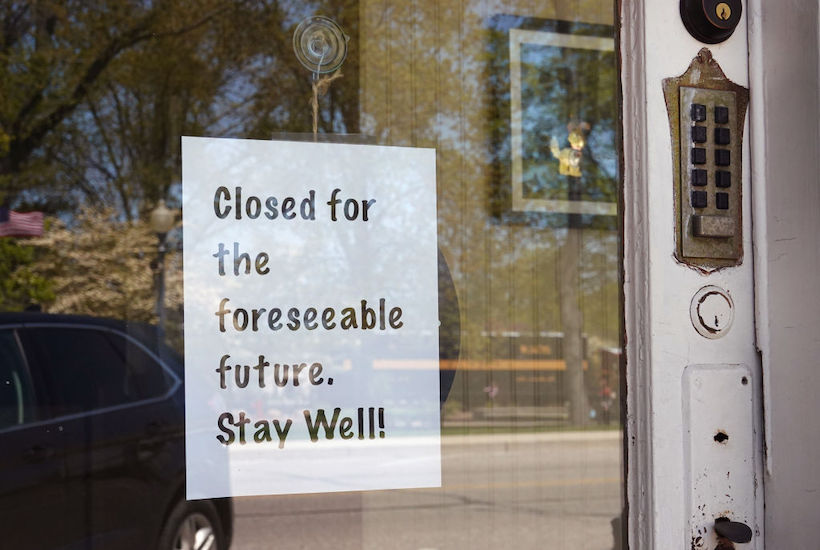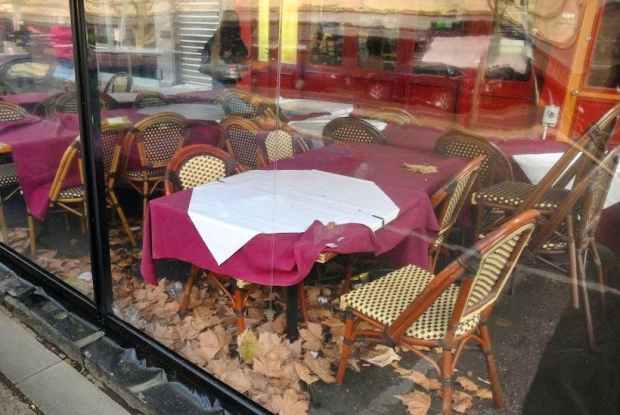I watched coverage of the freedom protests with sadness and couldn’t help but think it was inappropriate to hold such an event given the current restrictions. My view on this is consistent with the position I took on the BLM protests last year. And while the protest was ill-timed, I greatly empathize with the frustration, bordering on desperation, that people have with persistent lockdowns, isolation and the inability to earn a living.
For over 12 months, we have been bombarded with self-righteous platitudes by those on the public purse who are totally unaffected by restrictions; they keep telling us that ‘we are all in this together’ and ‘we all have to do the right thing’. People who attended the protest at the weekend, many who are materially affected by lockdowns, have been routinely called selfish. The NSW Police Minister referred to them as ‘boofheads’. Frankly, I’m astonished public servants think it’s acceptable to tell people who don’t know how they’ll pay their mortgage or feed their kids to just shut up and suck it up.
Actually, it’s incredibly cruel. But the narrative has been so consistent and continuous that it almost seems normal.
One of the most egregious phrases in the public servant Covid bingo arsenal is ‘essential worker’. It’s the notion that some jobs are more important than others, and accordingly, if your job isn’t considered ‘essential’, you get relegated to not being permitted to earn a living. Unfortunately, but unsurprisingly, the public service views the notion of ‘essential worker’ from entirely the wrong perspective. It isn’t the substance of the job itself that is essential, rather it’s what the employee receives from their employment, including self-worth, which should be the primary consideration. That is, if an employee has a job that pays the bills and puts food on the table, then that person is an essential worker. It is fundamentally unfair to use arbitrary demarcations to decide who gets to feed their family and who doesn’t.
Sadly, the person usually delivering this message is a shiny bum on full pay who isn’t sitting at home anxiously watching the bills pile up. They haven’t lost any skin in this upheaval and were shrewd enough to crown themselves ‘essential’.
On 31 December 2020, the World Health Organization said that while large scale physical distancing and movement restrictions can slow COVID19 transmission, these measures can have profound negative impacts on individuals and communities, and disproportionally affect disadvantaged groups.
In Australia, the most fervent proponents of lockdowns are invariably those in public or secure private-sector jobs who can work from home. The flipside is that those most affected by lockdowns are usually those who need to physically attend their workplace to earn a living, such as a shop, a construction site or a factory. Those people may or may not fall into the obscure definition of ‘essential worker’, and in any event, are more likely to be paid less than someone who can bill in 6-minute units from the comfort of their marble benchtop.
As lockdowns are prolonged, isolation pervades, and the financial screws tighten, those in the vice become increasingly frustrated. They fall further into debt and further into hopelessness. And they increasingly mistrust the political class, their gaggle of credentialists, and those reoccurring platitudes.
As time goes on, swathes of people are increasingly unheard.
This caused me turn my mind to Mohamed Bouazizi, the Tunisian fruit vendor whose actions sparked the fateful Arab Springs. He was allegedly humiliated in public by police and had his wares confiscated because he supposedly did not have the correct permit. It is said that he went to the governor’s office to complain, the governor refused to see him, and so he stood in a public square, allegedly yelled ‘how do you expect me to make a living?’ and self-immolated.
Now, before the willfully obtuse start flailing in confected outrage – I am not suggesting that Australian police are systemically corrupt, nor am I suggesting that people in lockdown should set themselves on fire.
What I am saying is that the ability to earn a living and provide for our families is an intrinsic part of who we are as human beings. We abolished slavery because we believe that in a civil and sophisticated society people should be fundamentally free to work and receive fair recompense for effort. And yet here we are in 2021, with people being denied the ability to work and expected to suffer financial ruin and indignity in silence.
It is the very definition of iniquitous. And the admonishment from those meant to serve only makes it worse.
Now, we all know there’s a pandemic afoot and the potential consequences need to be taken seriously. But we must look at COVID19 in the context of the broader consequences of lockdowns and our eventual recovery – and like everything else in life, there is a myriad of risks that need to be balanced and managed. There needs to be leadership on this issue so we can find some middle ground between COVID19 risks and other health, financial and societal risks; kids need to go to school, health services need to be improved, and people need to be able to work so they can recover their financial positions. And we cannot continue to shamelessly saddle younger generations with our hyper-emotional baggage, lack of perspective and preference to work in our jarmies. Not to mention the millstone of debt we are leaving around their necks together with their irreparably damaged schooling.
Our leaders need to have an honest conversation with the people sans the politics and the fear-mongering. Spell out the actual risks. And stop lecturing people when they haven’t even considered walking a mile in their shoes much less actually doing it.
It’s not too late to return to people the dignity of work. We don’t want to risk immolating our recovery and our future.
Caroline Di Russo is a lawyer, businesswoman and unrepentant nerd.
Got something to add? Join the discussion and comment below.
Get 10 issues for just $10
Subscribe to The Spectator Australia today for the next 10 magazine issues, plus full online access, for just $10.

























Comments
Don't miss out
Join the conversation with other Spectator Australia readers. Subscribe to leave a comment.
SUBSCRIBEAlready a subscriber? Log in